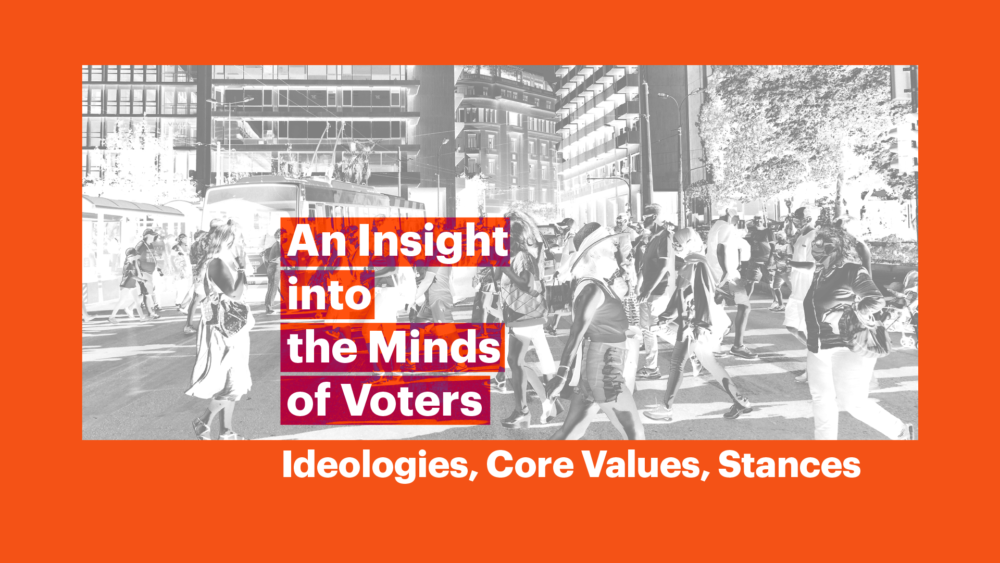
Sky-high rents: In search of solutions
In June ‘22, Eteron published the first nation-wide quantitative survey in Greece focusing exclusively on renters, as well as a policy paper on that subject, called “Policy Paper: For the right to affordable rental housing”. The present analysis uses data extracted from the quantitative survey in order to highlight the main aspects of the rental housing crisis as well as some potential solutions.
In the past few months there have been more and more discussions regarding the housing issue in the public discourse 1. In all of them there was mention of the undeniable increase in housing costs that Greek households have to undertake. According to the Hellenic Statistical Authority’s (ELSTAT) Harmonised Index of Consumer Prices, housing costs (be it rent or mortgage payment plus utilities) have increased by 36.1% in the period between May 2021 and May 2022, thus making them the goods and services category with the highest spike in terms of costs.
Right from the start, at Eteron we decided that rather than looking into housing in general, we’d focus on rents, thus recognising that housing insecurity and the impoverishment risk is significantly higher for those who live on rental housing and probably don’t have an alternative option. The recent statistics regarding 2020 published by Eurostat paint a grim picture: while the percentage of those who are overwhelmed by their housing costs is 33.3% when considering the total of the Greek population, the percentage reaches a staggering 79.2% amongst renters.
At the same time, the State continues to focus mainly on policies to support owner-occupation, ignoring both the obvious need for immediate bold interventions in the rental sector as well as the European recommendations for equal treatment of different forms of tenure neutrality.
But how do renters experience the circumstances that have been formed during the past few years? How do they cope with the increased housing costs? How do they perceive the issue they’re currently facing? Do they expect someone to come up with solutions and if so, which measures do they consider to be more suited to help them overcome the current rental housing crisis?
In order to get answers to those questions, Eteron conducted the first quantitative survey in Greece that focuses exclusively on people living on the rent. The survey took place between 24th May and 3rd June 2022 and the sample consisted of 1007 people from different parts of Greece. Their replies helped us reach significant conclusions that can help us better understand the extent and the depth of this particular issue as well as the necessary responses that should be given.
The first step would be to look at the rent-income ratio of those who participated in our survey. There is a clear differentiation between low and high income people. Very low and low income earners (i.e. people earning up to € 1000 per month) live in houses where the rent costs up to € 350 at the most. This figure is 81.3% for those earning up to € 500, 71.5% for those earning € 500-700 and 68.4% for those who earn € 700-1000. Only the higher income earners (i.e. those who earn over € 1500 per month) are able to afford the most expensive rents (flats that cost over € 600 per month), as less than 5% of people who earn less than that choose to live in flats that cost as much. There’s slightly less difficulty but an equal breadth regarding the rent category of € 450-600. Only 10% of those who earn € 700-1000 and 17.1% of those who earn € 1000-1500 live in flats where they need to pay this amount for rent.

Interestingly enough, a significant share of the higher income earners who participated in Eteron’s survey, on occasion will need to receive financial aid from friends and family in order to cover rental housing costs. 13.2% of those who earn € 1000-1500 receive that kind of help on occasion – a percentage that drops to 9.8% for those who earn over € 1500.
In other words, there’s a certain dispersion of income based on the amount of rent paid. The majority of the people who participated in our survey, regardless of their monthly income, live in houses where the rent is up to € 450. The percentage of low income people who live under those conditions is overwhelming and only the few who earn more on a monthly basis can cope with higher rents – and still, many of those are reluctant to do so. Another factor that raises (or should raise) concern is that informal social support networks within Greek society play a greater role than the state itself in an issue as crucial as rental housing.
There are three questions in Eteron’s survey that allow us to better understand how renters experience the correlation between their income and the rent they have to pay on a monthly basis. When asked if they are able to make rent every month without struggling, 27.8% stated they’re able to do so without any difficulty, 23.2% can make rent with some difficulty, 31.4% struggle significantly in order to make rent payments, 10.2% find it extremely difficult to pay their rent while the remaining 6.2% are struggling to the point of being usually behind on rent payments. According to the above statistics, one out of two people are significantly struggling to make rent. Still, it’s also true that one out of two people face little to no difficulty when it comes to paying their rent, possibly reflecting the fact that rent increases have not yet affected the majority of renters and that access to housing is an inelastic expense, regarding which renters are more willing to compromise than with other expenses.
Still, only one person out of ten states that the rental housing issue isn’t affecting their lives and future plans. Regardless of their income, the inability to save is proving to be a primary consequence for all the participants in the survey (on average 49.2%), followed by financial difficulties (on average 41%) and difficulty in long-term planning/cancellation or postponement of personal plans (28.6%). In fact, 12.6% of the renters in our sample had to find a second job in order to be able to meet their needs.

The financial pressure that renters feel becomes even more apparent through their replies to the question “After paying your monthly housing costs, are you left with enough money to cover the rest of your basic needs?”. 61.7% state that they just about manage to make ends meet and have to cut back, 17.8% say that they manage to live as they want but are unable to save, 15.2% say that in order to make ends meet they have to receive financial aid or borrow from third parties and only 4% manage to live as they want and save. In other words, we found that only one out of five renters who participated in our survey are able to live as they wish and that only 13.4% of the highest paid, who struggle less to get through the month (52.4% of them stated that in the survey), are able to have savings.
This correlation between income and increased rent or overall increased housing costs has proved to be the main issue for renters. Increased electricity and other utility bills are a key problem for 65.5%, while expensive rents are a major problem for 34.8%. Other issues that are causing concern are: difficulty in finding property to rent (28.9%), properties in inadequate condition (26.4%), lack of heating/cooling (21.9%) and lack of space (15.6%).
Some qualitative aspects of these responses help us to understand a little better who experiences these problems to a greater or lesser extent: (a) the increased cost of electricity and other utility bills is the most frequent problem for the survey participants, apart from those who pay more than €600 rent, while it is rather amplified, compared to other groups, for families with children (71.6%), (b) as rents increase, the problem of expensive rent also increases significantly, since among the 19% of the people who live in rents below €250, the problem intensifies significantly in the following categories: by 31.7% for rents between €250-350, 47.2% for rents between €350-450, 58.5% for rents between €450-600 and by 63.2% for rents over €600, (c) the problems of poor quality and inadequate cooling/heating systems tend to be concentrated in houses with a rent of less than €450.
While these two responses respectively add up 56.6%, 50.6% and 52.7% of houses with rents below €250, €250-350 and €350-450, for rents of €450-600 and over €600, these percentages drop to 28.3% and 13.2% respectively, (d) while the percentages for space constraints are not overwhelming (apart from 44.6% of the people living in houses of less than 30m² who report the lack of space as a major problem), it is worth noting that if we focus on the composition of households in relation to the square meters of their rented accommodation, we find that a significant percentage of households with numerous members live in houses measuring 50-70 m². (with 5 + members: 13.2%, with 4 members: 19.3% and with 3 members: 21.2%), (e) while the difficulty of finding property to rent is a consistent problem for all age groups by about 30%, the younger age group (18-24) seems to be significantly less concerned by that (19.4%). This may be related to the fact that they’re more willing to compromise as, in all likelihood, the rented accommodation they have found is the first step of detachment from the parental home.
From all of the above we realise that renters are a social group that is under great strain, they already make significant sacrifices and the increased cost of rent and even more so of housing is not only a great financial burden, but it also poses significant obstacles in their struggle towards quality living conditions and their ability to control its basic parameters.
In fact, these problems do not seem to concern specific groups of renters, be they groups based on their age, income or household composition, but rather affect all those who rent the house they live in. Regardless of whether one has a family, whether they earn a good salary by Greek standards, or whether they are young people who have just moved out of their family home for the first time, each social group faces the problem of rented accommodation with more or less the same intensity, although, as it is to be expected, there are quality differences on certain issues.
And all this is happening at a time when, according to the renters’ statements, the majority of them (53.9%) have not yet experienced a rent increase. However, for 83.1% the problem of rented accommodation is of great/sufficient concern to them and only 5.8% say it is of little/no concern to them.
If we combine the responses given to the questions “in your opinion, what are the reasons people find it difficult to find affordable rental housing” and “what measures do you think are necessary in order to address the rental housing crisis”, we can get a slightly better understanding of the general context in which renters place the problem they are facing and therefore the priorities they set.
The most popular answers to the two questions above are, for the first one, expensiveness (49%) and for the second, the need to increase wages and create jobs (56.5%). In other words, the population group of those who live on the rent also places the rental housing issue within the wider frame of the economic deprivation that Greek society is experiencing. These results are in line with findings of other surveys as well. For example, according to the Standard Eurobarometer 2021-2022, the “cost of living” (50%) and the “financial situation of my household” (24%) are the two most important issues inhabitants of Greece were facing during this past winter. Another survey conducted by Dianeosis (2022) on “What do young people think” shows similar results. The top three answers to the question “What would you like the State to do for you?” were “provide jobs/ increase work opportunities and incentives” (23.4%), “guarantee prosperity/ security/ quality of life” (13.1%) and “increase salaries/ provide financial security” (12.3%). Finally, Eteron’s research on the economy and social justice also revealed an increased dissatisfaction of Greek society with their income level, as 63.4% of those surveyed said they were not at all/very satisfied with their financial earnings in relation to their profession.
If we carry on examining the results, though, clear reasons and concrete measures on the issue of rental housing begin to emerge. A couple of reasons/measures that stand out by far are those of “no rent control/unreasonable landlord demands” (45.3%) and “rent cap” (53.3%). Indeed, the cap on rents seems to be equally supported by all groups of the sample population of renters, regardless of age, income, marital status, region of residence, etc. The only group that opts for it less frequently (37.1%) are renters living in towns or villages with less than 10 000 inhabitants.
The next most preferred measure is “taxation and other incentives for landlords” (37.9%). The tenants in the sample seem to prefer this measure not because they believe that landlords are a social group that needs help, but because they believe that landlords are part of the problem. This is evident both from the high ranking given to “unreasonable landlord demands”, but even more so from the fact that the option “financial difficulties faced by small-scale homeowners” ranks last (9%), in the same question. At the same time, “homeowners” are considered to be those who are mainly responsible for the problem itself (50.2%), other than the government. Thus, a tense situation between these two groups is apparent, which should be of great concern to all parties involved.
In the subsequent positions of the reasons/measures’ list, one finds more specialised issues, which, however, receive considerable percentages. We can therefore see that 24.1% of the renters in the sample point to short-term rentals as the main cause of the problem and 19.7% believe that they should be regulated. Similarly, 21.3% select the absence of social housing policy as a major factor in the rental housing issue and 23.8% consider social housing policies to be a key part of the solution, while 19.2% select the use of vacant state buildings as a viable option. Finally 13.7% identify speculative investment in housing (e.g. Golden Visa) as a major problem and 13% would therefore like to see it monitored.

Two main conclusions can be drawn from the above renters’ statements: a) the renters’ need for a comprehensive approach to the issue of rental housing, that would include a mix of measures able to address the problem both directly (e.g. through a “rent cap”), as well as in a more long-term and strategic way (e.g. through “social housing policies”); b) the renters’ need for policy interventions in order to regulate the market, be it that of rental housing, short-term rentals, speculative investment in housing, or a combination of all the above.
At Eteron, since the beginning of 2022, we have published a set of analyses, precisely to highlight the multiple layers of this whole issue, or to put a positive spin on it, the multiple opportunities for intervention. Th. Maloutas highlighted the characteristic absence of social policies in Greece. D. Balabanidis and E. Papatzani supplied data of great significance regarding the scale and traits of short-term leases in the country. G. Alexandri explained the way in which housing investment practices are increasing both abroad and in Greece. A. Kalantidis linked the issue of housing to the issue of public urban space management. Lastly, we have highlighted the changes that have occurred regarding the housing access model in our country and its impact on “Generation Rent”, as well as the issue of energy poverty. And currently, in June we are publishing our study of proposed policies which we hope will be a useful tool for dialogue for all parties involved.
It now remains to be seen what of all the above will actually be recognised as opportunities for intervention, that would aim at the effective support of a group within Greek society that is under a lot pressure, namely people who live on the rent.
Read also an analysis by Petros Ioannidis, director of aboutpeople, “How renters experience housing insecurity“
Executive Summary: For the right to affordable rental housing
Notes
- At the end of May, the Prime Minister declared the government’s commitment to promote policies that would focus on the housing issue. A few weeks prior, the leader of the opposition had presented his own suggestions on the same subject, as had – back in April – the political Party Movement for Change (Kinima Allagis – PASOK). [↩]


